Filter by
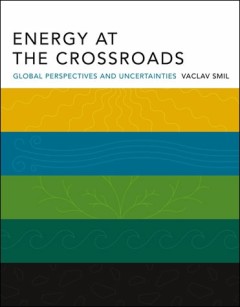
Energy at the Crossroads: Global Perspectives and Uncertainties
In Energy at the Crossroads, Vaclav Smil considers the twenty-first century's crucial question: how to reconcile the modern world's unceasing demand for energy with the absolute necessity to preserve the integrity of the biosphere. With this book he offers a comprehensive, accessible guide to today's complex energy issues -- how to think clearly and logically about what is possible and what is …
- Edition
- -
- ISBN/ISSN
- 9780262283847
- Collation
- 1 online resource (xiv, 427 pages) :illustrations, maps
- Series Title
- -
- Call Number
- -
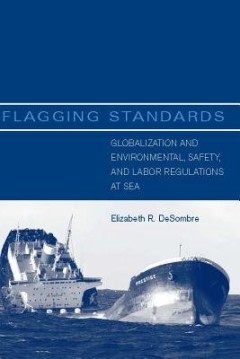
Flagging Standards: Globalization and Environmental, Safety, and Labor Regula…
Examines the relationship between globalization and environmental, safety, and labor standards in the context of the shipping industry and explores the extent to which international competition affects regulatory standards.OCLC-licensed vendor bibliographic record.
- Edition
- -
- ISBN/ISSN
- 9780262271615
- Collation
- 1 online resource (xi, 308 pages) :illustrations
- Series Title
- -
- Call Number
- -
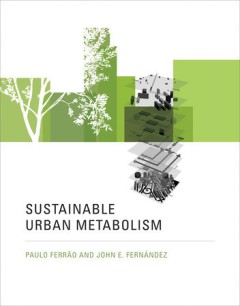
Sustainable Urban Metabolism
A unified framework for analyzing urban sustainability in terms of cities' inflows and outflows of matter and energy. Urbanization and globalization have shaped the last hundred years. These two dominant trends are mutually reinforcing: globalization links countries through the networked communications of urban hubs. The urban population now generates more than eighty percent of global GDP. Cit…
- Edition
- -
- ISBN/ISSN
- 9780262316958
- Collation
- 1 online resource (xiii, 244 pages) :illustrations
- Series Title
- -
- Call Number
- -
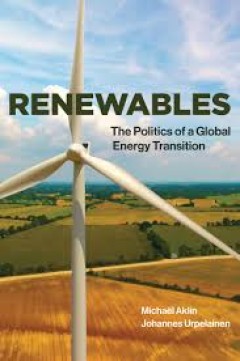
Renewables :the politics of a global energy transition
A comprehensive political analysis of the rapid growth in renewable wind and solar power, mapping an energy transition through theory, case studies, and policy.OCLC-licensed vendor bibliographic record.
- Edition
- -
- ISBN/ISSN
- 9780262344609
- Collation
- 1 online resource
- Series Title
- -
- Call Number
- -

Managing Institutional Complexity: Regime Interplay and Global Environmental …
"A Core Research Project of the International Human Dimensions Programme on Global Environmental Change (IHDP)."Here, experts investigate how states and other actors can improve inter-institutional synergy. They examine the complexity of over-lapping environmental governance structures.OCLC-licensed vendor bibliographic record.
- Edition
- -
- ISBN/ISSN
- 9780262298346
- Collation
- 1 online resource (xvi, 353 pages) :illustrations.
- Series Title
- -
- Call Number
- -
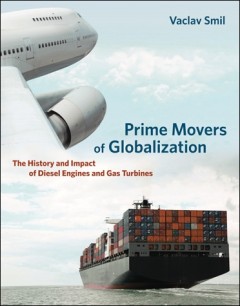
Prime Movers of Globalization: The History and Impact of Diesel Engines and G…
""In Prime Movers, Smil's passion for the Cinderellas of civilization focuses on the diesel engines and gas turbines that power ocean vessels and wide-body jets. These engines have made ocean shipping and intercontinental air travel so cheap that they have changed the face of our planet. Marshall McLuhan's dreams of a Global Village have become true in unimagined ways. Being an engineer myself,…
- Edition
- -
- ISBN/ISSN
- 9780262289771
- Collation
- 1 online resource (261 pages) :illustrations, maps
- Series Title
- -
- Call Number
- -
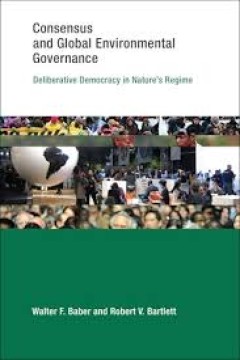
Consensus and global environment governance :deliberative democracy in nature…
In this book, Walter Baber and Robert Bartlett explore the practical and conceptual implications of a new approach to international environmental governance. Their proposed approach, juristic democracy, emphasizes the role of the citizen rather than the nation-state as the source of legitimacy in international environmental law; it is rooted in local knowledge and grounded in democratic deliber…
- Edition
- -
- ISBN/ISSN
- 9780262327046
- Collation
- 1 online resource (xviii, 251 pages) :map.
- Series Title
- -
- Call Number
- -
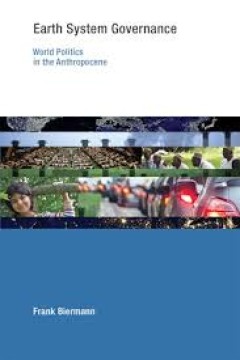
Earth System Governance: World Politics in the Anthropocene
In an era of planet-wide transformation, we need a new model for planet-wide environmental politics. This book proposes 'earth system' governance as just such a new paradigm. It offers both analytical and normative perspectives. It provides detailed analysis of global environmental politics in terms of five dimensions of effective governance: agency, particularly agency beyond that of state act…
- Edition
- -
- ISBN/ISSN
- 9780262322928
- Collation
- 1 online resource.
- Series Title
- -
- Call Number
- -
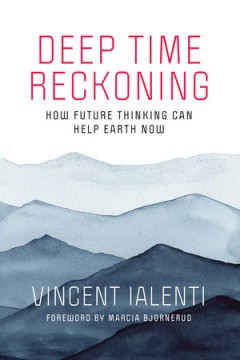
Deep time reckoning :how future thinking can help earth now
"How Finland's nuclear waste experts discern far future Earths, and what the rest of us non-Finns and non-experts can learn from them"--OCLC-licensed vendor bibliographic record.
- Edition
- -
- ISBN/ISSN
- 9780262359368
- Collation
- 1 online resource.
- Series Title
- -
- Call Number
- -
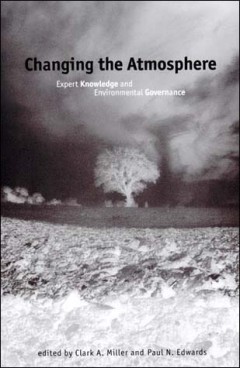
Changing the Atmosphere: Expert Knowledge and Environmental Governance
In recent years, Earth systems science has advanced rapidly, helping to transform climate change and other planetary risks into major political issues. Changing the Atmosphere strengthens our understanding of this important link between expert knowledge and environmental governance. In so doing, it illustrates how the emerging field of science and technology studies can inform our understanding…
- Edition
- -
- ISBN/ISSN
- 9780262279819
- Collation
- 1 online resource (xii, 385 pages) :illustrations.
- Series Title
- -
- Call Number
- -
 Computer Science, Information & General Works
Computer Science, Information & General Works  Philosophy & Psychology
Philosophy & Psychology  Religion
Religion  Social Sciences
Social Sciences  Language
Language  Pure Science
Pure Science  Applied Sciences
Applied Sciences  Art & Recreation
Art & Recreation  Literature
Literature  History & Geography
History & Geography